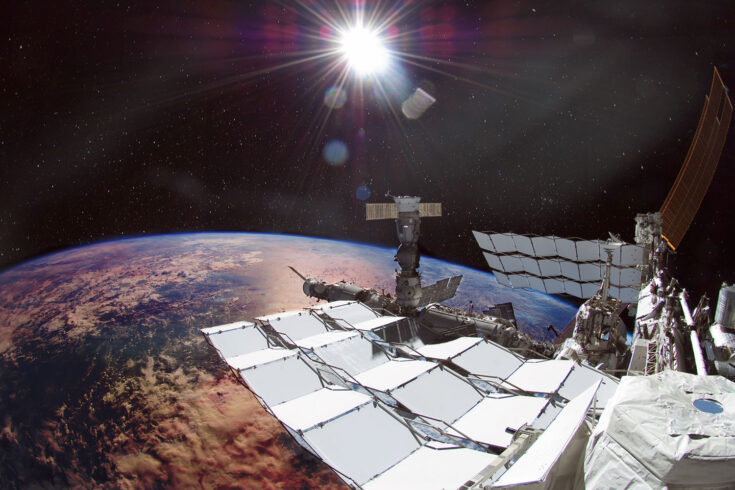New papers show UK Research and Innovation (UKRI)-funded research in the largest space data collection ever produced.
National Aeronautics and Space Administration (NASA) is leading a unique collaboration with Japan Aerospace Exploration Agency, European Space Agency (ESA) and Roscosmos State Corporation for Space Activities.
This has led to the largest set of astronaut data and space biology data ever produced. It includes findings from work funded by UK research councils.
More than 200 investigators from academic, government, aerospace, and industry backgrounds are jointly publishing their finding and reports.
NASA’s omics initiative of the Space Biology and Human Research Programme and Twins study are forming the foundation of the collection.
Supporting collaboration
The collaboration includes longitudinal multi-omic profiling, single-cell immune and epitope mapping, novel radiation countermeasures, and detailed biochemical profiles of 56 astronauts. This represents more than 10% of all humans that have ever been in space.
UKRI is funding multiple researchers and PhD students within the 200 investigators involved in these studies.
Support is provided by:
- Biotechnology and Biological Sciences Research Council (BBSRC)
- Engineering and Physical Sciences Research Council (EPSRC)
- Medical Research Council (MRC)
- Science and Technology Facilities Council (STFC).
One such researcher is Nathanial Szewczyk, former Professor of Space Biology at the University of Nottingham. Nathanial’s research, supported by BBSRC, is looking at muscle decline in space, the ‘worms in space’ (Molecular Muscle Experiment) project.
Exciting time for UK Space life sciences
When talking about his work Nathanial said:
It is such an exciting time for UK Space life sciences.
Edinburgh preparing to launch the BioAsteroid experiment to the International Space Station next month, Exeter leading a NASA GeneLab project just published in iScience, and Queen’s University Belfast leading this NASA GeneLab project published in one of the top biology journals.
Willian’s paper really highlights how researchers in UKRI priorities such as Big Data and -omics techniques have helped the UK Space Agency translate the UK’s leadership in the Life Sciences into leadership in International Space Life Sciences.
The UK’s role in Space data
Willian Abraham da Silveira is a Research Fellow from Queen’s University Belfast and is the UK first author of a key paper in the data package announced this week.
When talking about his work Willian said:
In industry they say that 80% of outcomes result from 20% of all causes, this is what drove me when I was looking at cells and organs exposed to Space.
It was during this research that I realised a great part of what we were seeing had a mitochondrial component and that Space radiation and microgravity have the potential to directly distress the powerhouse of a cell.
We had the opportunity to check astronaut parameters and gene expression from Mark and Scott Kelly, the astronauts of the NASA Twin Project, and the data supported our hypotheses.
After that it was a lot of work from an incredible team.
The Hardiman’s Group at Queen’s University Belfast was pivotal on that research with NASA GeneLab and the strong UK component of the Space Omics Topical Team funded by ESA put the UK in a strategic position to further develop the future of Space biology research.
I am grateful to be part of all this.
UK Space Agency supporting the collaboration
The UK Space Agency is also supporting the UK’s role in this collaboration. UK researchers have access to the International Space Station through the UK Space Agency’s membership to ESA. Our contribution to ESA enables the UK to collaborate with space agencies across the world.
Libby Jackson, Human Exploration Manager at the UK Space Agency, said:
Space offers a unique environment to conduct experiments. The findings of this research can be used to improve lives on Earth from furthering our knowledge of diseases like cancer to studying how the body ages.
UK scientists have been involved in 17 cutting-edge experiments, which have taken place on the International Space Station, with a further 33 projects currently in development. Our membership to ESA opens doors for UK researchers to complete ground-breaking science in Space.
Further information
You can read the research papers (Cell Press).

